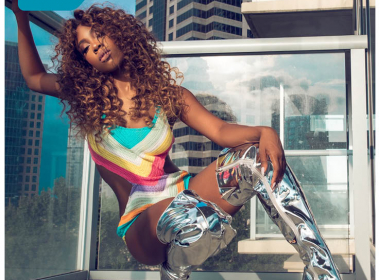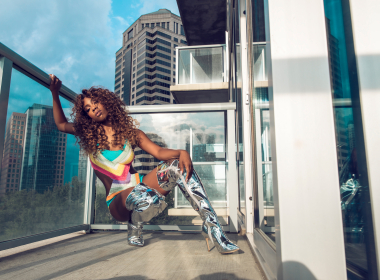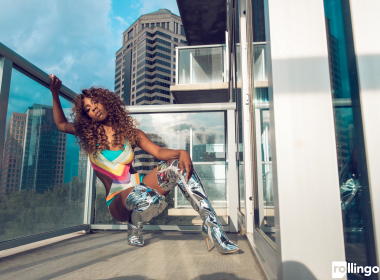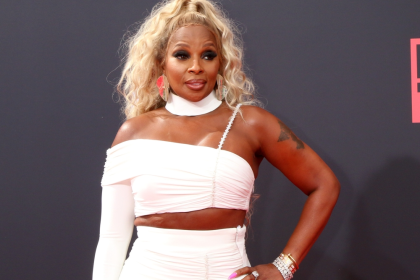From humble beginnings of singing church hymns in Haines City, Florida, to selling out shows in Hollywood, Sevyn Streeter has shown critics her relentless hustle and why “It Won’t Stop” (the 2013 song and video featuring Chris Brown).
The 31-year-old singer-songwriter signed with Atlantic Records in 2012 after departing from girl groups TG4 and RichGirl. The world’s first introduction to Streeter was the EP, Call Me Crazy, and was later followed up with the Should’ve Been There EP, which was released in 2015.
After a two-year hiatus, Streeter is back and better than ever with her latest project, Girl Disrupted. The 13-track release features appearances from Jeremih, Wiz Khalifa, Ty Dolla $ign, DeJ Loaf and Dave East. Her new single listed on the album, “Anything U Want,” will instantly take you back in time to the ‘90s as the track samples SWV’s 1992 classic, “Anything.” Streeter believes it took 15 years to put out her best work.
Streeter began her interview with us detailing adolescent memories of her first experience with performing. “I’ve always wanted to sing. I’ll admit one of the first times I had the option to sing a solo was with my music teacher, Ms. West,” she shares. “She took me to the mall, and I backed out [at the] last minute. I was so scared; I was only in elementary school. I had to sit there and watch her give my part to another child.
“That was a really big lesson for me. It’s sad to say, but that’s when I knew I wanted to do this for real. The next time I had the opportunity to sing, I asked my mom if I could audition at ‘Showtime at the Apollo.’ I was like 10 years old, and we found a competition in Tampa, [Florida]. I went through three rounds, and my whole family came out to support. The grand prize was to be able to go to ‘Showtime at the Apollo’ and actually compete. I didn’t want to do anything else from that point on but just sing.
“The industry taught me throughout the years that you’re going to get a lot of no’s. You have to work three times harder than everybody else. At least for me, I know I have to. A no doesn’t always mean that you’re not good enough, but it may mean that it’s just not particularly your time. You just have to trust God and know that your time is going to come.”
Despite the R&B singer’s ongoing struggle with depression, nothing could dampen her enthusiasm for songwriting.
Before Streeter distinguished herself as a soloist, she was penning chart-topping hits for artists like Chris Brown, Ariana Grande, Tamar Braxton, Brandy and Alicia Keys.
“Writing for other artists is [incredible],” Streeter says. “It’s like my favorite thing in the world to do and mainly because it’s a trusting process. People have to really trust you for them to allow you to write their story. I [cherish] the interaction and the relationships with artists that I write for. It’s just [the] bomb!”
Amid the career challenges she faced, Streeter suffered the loss of her grandfather, and witnessed her breakup with B.o.B unfold on social media.
After calling it quits with the hip-hop star in 2015, Streeter is now back on the prowl. “I am in a space where I’m dating a little bit but nothing too serious,” she admits.
A year later, Streeter was slammed with another professional setback. In 2016, she made a public stance against racial injustice by wearing a “We Matter” shirt to a 76ers game, where she was scheduled to sing the national anthem. The NBA organization found her attire offensive, denied her the performance and escorted her out of the arena.
“I was very aware that we were at a sensitive time as a country, and me wearing that shirt was my way of speaking up [about] the injustices that were happening against African Americans,” Streeter said with pride. “Any time an entire group is [mistreated] in this country, there should be in an uproar because we are one huge melting pot.”
The 76ers issued an apology for the decision and brought her back a second time to perform and express her beliefs by allowing her to wear the controversial “We Matter” jersey. “God turned a [deplorable] situation into a beautiful one,” says Streeter.
“Throughout the last year, I had a lot of things that disrupted my [mental state], like friendships, family and my job, which were all triggers of what I was feeling. I was able to bottle it up into a song [“Livin”] and not only tell the story of how I was during that time when I was in that state of mind [but also] to the point where I was no longer in that state of mind. It talks about how I lost the fight with my heart, but I’m living without a care. I’m in a happier place now,” she says.
“I think a lot of times people think just because we’re artists that we don’t go through s—, and that could not be any further from the truth,” Streeter says candidly. “That just comes with being an artist. I hate to say this, but every artist has a little bipolar in them. It doesn’t necessarily mean that there’s something wrong with you. It just means that you’ve tapped into different emotions, and that’s all being an artist is.”
Throughout her journey of finding self-love, inner peace, and her best sound yet, Streeter’s generous spirit has maintained a devoted connection with her fans.
“All I want is for my fans to genuinely like my music,” she explains. “I care about if they feel like I created a project that [ultimately] went left of what they know me for. My connection with my fans is everything. My number one priority is that I looked out for them.”
























